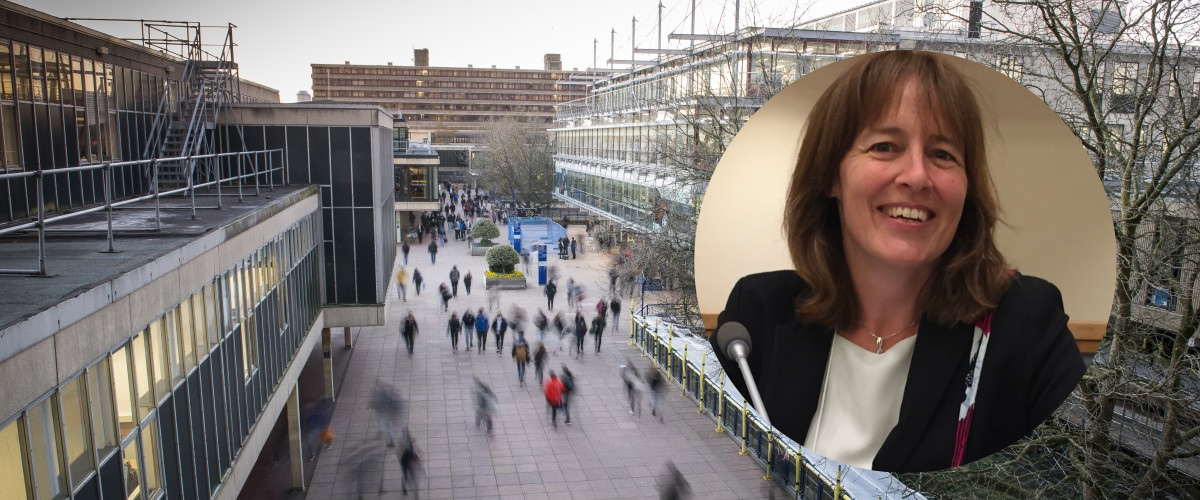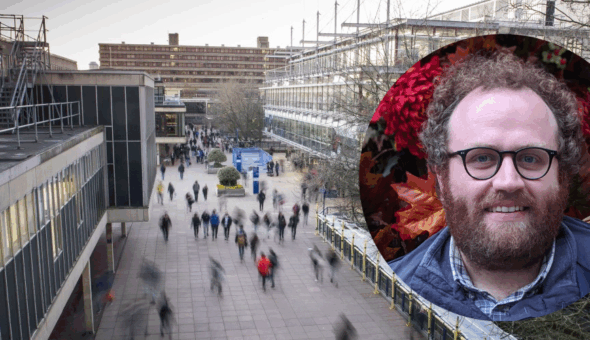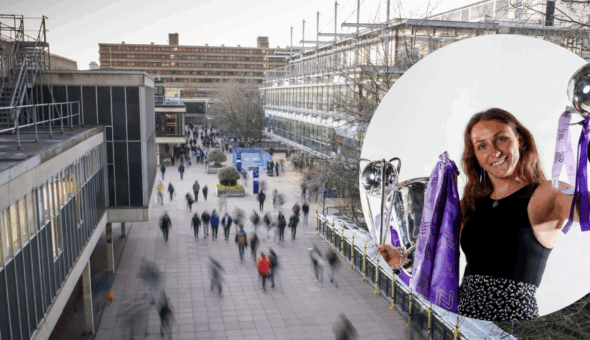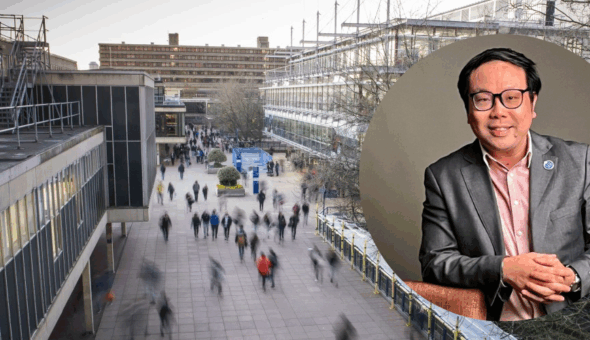Rebecca Edgington is the head of the English interpreting section at the UN in Geneva.
She has worked as an interpreter at major international organisations across the world, including the Council of Europe, FIFA, the International Olympic Committee and more, and thrives off the variety and genuine life-long learning that her profession offers.
Read on for her full story.
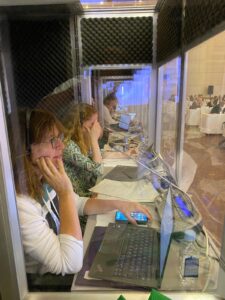 Why did you choose to study at Bath?
Why did you choose to study at Bath?
Bath is one of very few universities to offer a conference interpretation postgraduate course and to consistently offer Russian as one of the languages for interpretation. I really wanted to push my language skills to the maximum and Bath impressed me when I visited for interview. It was an easy decision!
Did you have a particular career in mind when you chose your course?
Yes, I wanted to see if I could become an interpreter. More specifically, I dreamt of working as a conference interpreter at prominent international organisations such as the United Nations (UN), Council of Europe (CoE) and the European Union (EU).
Can you tell us about your experience of studying here?
It was such an intense course that most of my memories are of the language labs and a lot of late-night study sessions cooking and laughing together. I stayed in Combe Down and particularly enjoyed the walk or cycle to the University from where I lived.
Another highlight was the Friday workshops held by visiting interpreters and translators – these were always very inspirational.
Describe your career journey since graduating. What is a typical day like in your current role?
After graduating, I moved to Strasbourg as a freelance interpreter, continuing my studies to pass the vocational tests but already working. I travelled a great deal and really enjoyed the work.
Then in 2004, having passed the competitive exam for staff interpreters at the UN, I moved to Geneva to become a full-time staff interpreter. At the UN, we cover the full range of subjects from highly technical transport and trade meetings to human rights investigations, climate change conferences, summits and peace talks. I have travelled all over the world for work and in 2013 became the head of the English interpretation section at UN Office at Geneva.
On a typical day, I complete admin and preparation from 8am, and I am then assigned to interpret from 10am–1pm and again 3pm–6pm. Over lunch, I will normally have management meetings or catch up with colleagues. The programme for the next day is sent at around 7pm and then I may need to prepare, or at least check, my glossaries for those assignments.
Every day is different. Last week I interpreted for peace talks on Wednesday, a human-rights country review on Thursday and a meeting on freight transport on Friday. I love this variety and genuine life-long learning.
How did your studies help you to develop, professionally and/or personally?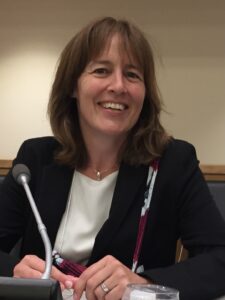
The Bath course gave me all the skills I needed to become an interpreter; it provided the strategies and tools that set me well on track to pass the vocational tests. It was intense and challenging and helped me develop resilience and a core of confidence to help me stay calm in highly stressful circumstances.
We had visits and masterclasses with working interpreters and translators that showed us the path towards the profession. I was sent on a placement to the international union of railways in Paris over the Easter break, which was a fantastic experience and the first time I went out live as an interpreter at one of their meetings.
What advice would you give to prospective students thinking about studying your course at Bath?
The Bath course is a fantastic, immersive course that will give you all the tools you need to join the language professions. Treat it as a full-time job and make the most of every opportunity offered by the staff. Practice the different parts of the process and add to your language skills constantly. Progress is not linear, so do not lose heart, stay motivated and you will suddenly see a breakthrough.
Respond
